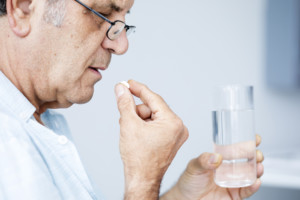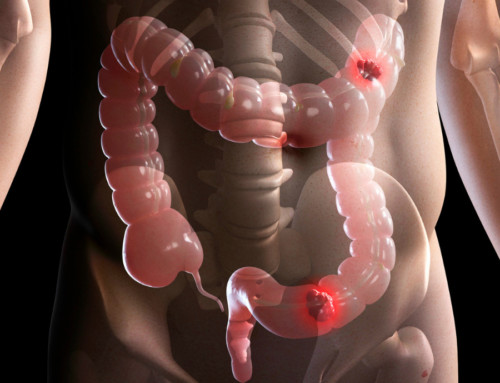
Colon cancer is one of the most common cancers in the United States. In fact, colon cancer ranks as the fourth most common type of cancer. Although that may be a frightening statistic, the good news is there that are some very practical measures you can take to prevent colon cancer.
From getting screened to changing your diet, consider adding these habits as part of your lifestyle to take action against colon cancer.
1. Get Screened
One of the most effective things you can do to prevent your colon cancer risk is to get screened as early (and as often) as is recommended by your doctor. A colonoscopy is only one of many options that are available when it comes to screening for colon cancer. Most procedures vary in how invasive they are and if sedation is required during the screening. However, the major benefit of choosing a colonoscopy is that it can detect and prevent cancer by removing polyps in the colon.
Talk with your doctor to find out which type of screening is best for you. Most should be repeated every five or 10 years, so it is you and your doctor’s responsibility to stay on top of your checkups.
2. Control Your Diet
What you choose to eat impacts your digestive system, which includes both your colon and your rectum. That’s why it’s important to keep an eye on your diet, and not just for weight loss reasons. Studies have shown that a person’s intake of red meat and processed meat is directly linked to higher rates of colon cancer. Conversely, diets that are rich in fruits, vegetables, and whole grains result in lower rates of colon cancer.
Choosing a vegetarian diet (which can also include some fish) is a great way to combat your risk of colon cancer risk. That’s because vegetables can give you the fiber to help prevent constipation, while fish contains omega-3 fatty acids, which supports good colon health.
3. Stay Active
Exercise benefits more than your muscles — it is also helps your organ health, too. Many studies have shown that people who exercise more often are less likely to develop colon cancer. Additionally, people who stay active are less likely to develop the types of polyps that are more likely to become cancerous.
The good news is that the intensity and frequency of exercise doesn’t have to be extreme: doctors say that just 30 minutes of moderate exercise a day can make a huge difference in lowering your risk of colon cancer. Increasing your daily physical activity can literally be a walk in the park.
4. Supplements & Sunshine
There are certain vitamins that have shown promise in helping to prevent colon cancer. Calcium, vitamin D, and folate show benefits when it comes to keeping colon cancer rates low. To get these vitamins in your diet, an easy option is to choose a balanced multivitamin to get the correct dosage (determined by your doctor). Be cautious and avoid megadoses because these may provide extra of vitamins you don’t need or may even cause your body harm. A moderate amount of each of these vitamins is all you need to get the full benefits.
Easier (and more enjoyable) than taking a pill, you can get your daily dose of vitamin D from a moderate amount of sunshine, too. Just remember to wear sunscreen to protect yourself while in the sun.
5. Get Rid of Bad Habits
Bad habits are bad news when it comes to colon cancer. Alcohol, tobacco, and stress are all contributing factors for increasing your risk of colon cancer. Doctors suggest quitting smoking as an important first step; but also quitting (or at least moderating) your drinking can also help reduce your risk, too.
Managing stress is different than simply “quitting,” but there are some easy things you can do to help limit your stress levels. You can look into reducing your workload, trying meditation, practicing yoga, or getting more sleep. Governing your stress levels can not only make a huge difference in lowering your risk of colon cancer, but it can also help your overall health, too.
One of the best ways that you can lower your risk for colon cancer is to understand the ways in which you can help prevent it. By trying to integrate some these prevention methods, you can help manage your risk of colon cancer. Another important step for prevention is to talk to your doctor about other additional ways that you can make easy (yet effective) changes to your lifestyle to lower your risk.





